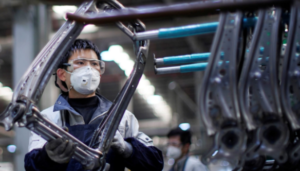If you want and like working from home, your answer is “Yes!”
If you hate working at home and can’t wait to return to work, your answer is “No!”
The truth?
Some people can be productive anywhere. You could put them on the moon and they would find a way to get done what needs to get done. Many of us, need a great deal of structure and guidance, and proper motivation.
We have this giant Work from Home experiment going on right now and a lot of HR folks are pointing to this and going, “See! I told you it would work!” But, is it really working?
The problem is what most of us are doing right now isn’t truly working at home. If you are trying to do childcare to co-habitat with multiple people in a house all trying to do work, it’s not really what a normal work at home situation would be.
Pre-Covid most studies on Work at Home were done by folks who had a mission to get more people to work at home, so quite frankly, I think most of those studies are crap. They didn’t really set out to see what situation would be better, only that working from home is better.
One of the main issues we see with working from home is that your real workers, those ten percenters who put in the most work, put in even more when working from home which could lead to burnout of your best talent. So, you might see productivity gains, but it’s not equal across the board. Like most work, the vast amount of gains is coming from folks who already probably gave you the most!
I’m not a work from home hater by any means. I think it’s a great way to add some flexibility for those employees who need it and can actually make it work. To be very clear, that is not all of your employees. The vast majority will not be more productive at home. And those who love working at home the most might actually be your least productive.
So, should you allow your employees who can continue to work from home? I think during a pandemic the answer is yes! I think once this is all behind us, we have to look at productivity in a normal work from home environment and make those determinations on our own.
In the small sample size, I have with my own company I know there are folks who would kill it no matter where they were working, and I have some folks who better get ready to return to the office!
The key to working from home isn’t your ability to actually be able to work at home. It’s your ability to be as good or better working at home as you were working from the office, in a normal business environment. We are not in a normal business environment. So, you working at 40% compacity at home doesn’t mean you’ve proven anything.
So, during this great Work from Home experiment, do you think you are more productive, less productive, or about the same? Hit me in the comments and let me know what you think!


